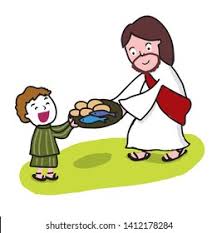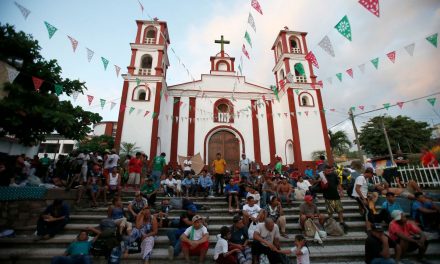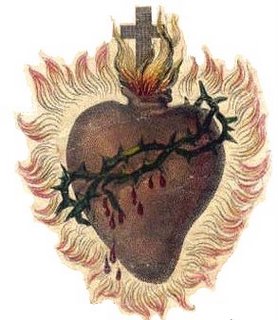Sometimes – maybe a lot of the time – it never seems like we can do enough to solve all the problems facing the world. Racism, broken families, disease, abortion, environmental destruction, economic exploitation, hateful gossip, corruption – it all seems overwhelming. And even short of solving these problems, we never even seem to have enough to meet the needs of all who call on us. I never seem to have enough time for all the people in my life, much less the people that I know I overlook because I am “too busy.” There are moments when it just seems like I want to say: I give up.
What I usually try to say to myself instead is: keep bringing the loaves and the fishes. In today’s reading, the character who should draw our attention the most is the boy who comes forward with his meagre stash of food. It’s so clear that his provisions can’t even begin to meet the need. Note the contrast: Elisha’s story is miraculous, but the disproportion is nowhere near that depicted in the gospel passage. In such a disproportionate situation, it’s so easy to retreat, to close ourselves off, to escape and take care of ourselves and our loved ones – and leave the crowd to its chaos.
For followers of Christ, this is never a real option. Instead, this is a story about the real possibility of abundance. This isn’t an abundance that we can produce with our own resources. It’s clearly an abundance that comes, as Elisha puts it, from trusting that God will provide. If we are generous, God will provide.
But the gospel story is also and finally a story about the identity of Christ. It isn’t a matter of Christ’s divinity – no one suggests Elisha is divine because he multiplies loaves. Rather, it’s meant to echo the image of Elisha, to announce to the Israelites starving for bread and for more than bread that the God-appointed leader has arrived. It is no wonder that the miracle leads them not to bow down and worship, but rather to make the move to crown Jesus king. Following this passage, in John’s Gospel, Jesus will go on to explain what bread – the bread of eternal life – he means to provide with his own Body. The hope being offered here, the sure promise, is that if we bring our loaves and fishes – if we die to self – we will receive the bread of life in unlimited abundance. This is a story that is already supposed to be happening here and now, but in sacramental ways – in ways that show forth symbolically the great possibilities of life in the Kingdom. We hope that those signs will become more powerful, feed and nourish greater crowds, but we also recognize that all this is to draw us into God’s own life and into the communion with God and one another that will endure in its fullness forever.
For that, we have to get up every morning and say once again to ourselves: bring the loaves and fishes. God will do something, if only we bring them up.




